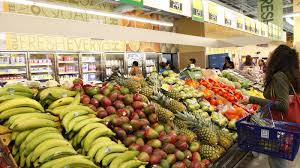Some World international organisations have decried that about 349 million people across 79 countries were faced with acute food insecurity.
The organisations include World Food Programme (WFP), Food and Agriculture Organization (FAO), International Monetary Fund (IMF) and World Trade Organization (WTO).
The Chief executives of these organisations were quoted to have expressed the reservation in a statement they jointly signed by WEP’s National Communications Officer, Dr Kelechi Onyemaobi, on Friday in Abuja.
According to the statement, there is need for urgent action to address the global crisis on food and nutrition security.
WEP said that poverty and food insecurity globally were on the rise after decades of development gains.
IT however, noted that supply chain disruptions, climate change, the COVID-19 pandemic, financial tightening through rising interest rates and the Russian war in Ukraine had caused an unprecedented shock to the global food system.
“Food inflation remains high in the world, with dozens of countries experiencing double digit inflation with the most vulnerable hit the hardest,” the statement said.
According to WFP, 349 million people across 79 countries are facing acute food insecurity.
It noted that the prevalence of undernourishment was also on the rise, following three years of deterioration.
“This situation is expected to worsen, with global food supplies projected to drop to a three-year low in 2022/2023.
“The need is especially dire in 24 countries that FAO and WFP have identified as hunger hot spots, of which 16 are in Africa.
“For example, the reduction in 2022 of the production of rice, for which Africa is the largest importer in the world, coupled with prospects of lower stocks, is of grave concern.”
it said “in response to the inflation of food, fuel and fertilizer prices, countries have spent over US$710 billion for social protection measures covering 1 billion people, including approximately US$380 billion for subsidies.
“However, only US$4.3 billion has been spent in low-income countries for social protection measures, compared to US$507.6 billion in high-income countries.”
According to the statement, to prevent a worsening of the food and nutrition insecurity crisis, there is need for further urgent actions to rescue hunger hotspots, facilitate trade, improve the functioning of markets, and enhance the role of the private sector.
“There is also need to reform and repurpose harmful subsidies with careful targeting and efficiency.
“Countries should balance short-term urgent interventions with longer-term resilience efforts as they respond to the crisis.’
The organisations however, called on governments and donors to support country-level efforts to address the needs in hotspots, share information and strengthen crisis preparedness.
The statement added that both WFP and FAO needed funds urgently to serve the most vulnerable.




